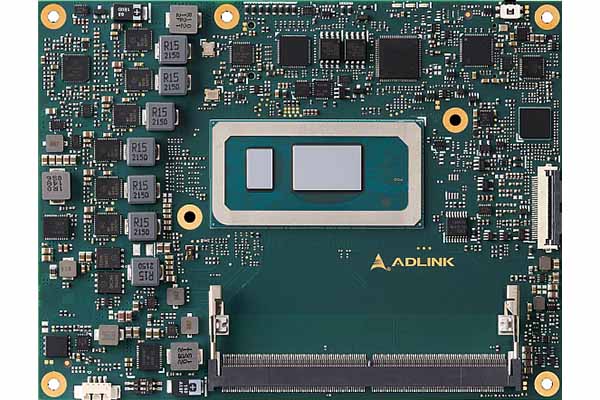WAKEFIELD, MA.: PICMG, a leading consortium for the development of open embedded computing specifications, announces that the new COM Express 3.1 specification has been ratified to support high-speed serial interfaces such as PCIe Gen 4 and USB4. These new interfaces will allow COM Express to continue to fill its role as the leading Computer-on-Module (COM) standard for performance-rich client systems. To support such high-speed signaling, an updated 16 Gbps connector has been specified across the family’s Type 6, 7, and 10 pinouts. SATA Gen 3 signal integrity and loss budget information have also been added for each Type. These improvements join pinout-specific upgrades including optional USB4 (Type 6), MIPI-CSI connectors (Types 6, 10), SoundWire (Types 6, 10), as well as an additional general-purpose SPI interface (Types 6, 10). A CEI signaling-enabled 10 GbE interface and IPMB management interface are also now defined in the Type 7 pinout as part of COM.0 R3.1.
“The PICMG COM Express specification just had its 17th anniversary. During this time, the specification has been updated to support the latest interfaces while focusing on maintaining backwards compatibility. Revision 3.1 is no exception,” says Jeff Munch, CTO of ADLINK Technology and Chairman of the COM Express subcommittee. “In the latest release of the COM Express specification, the subcommittee has added support for PCI Express Gen 4, USB4, and newer 10G side-band interfaces while maximizing backwards compatibility.”
COM Express Revision 3.1 Type 6 and Type 10 hardware is fully backward compatible with 3.0 modules and carrier boards, while Revision 3.1 Type 7 modules are backward compatible apart from 10GBASE-KR Ethernet side-band signals and a second PCIe reference clock not included on R3.0 modules.
For more on the COM Express family of specifications, go to www.picmg.org/openstandards/com-express, or purchase the latest specification revision from www.picmg.org/product/com-express-module-base-specification-rev-3-1.
More on PICMG’s range of open, modular computing standards can be found at www.picmg.org.














